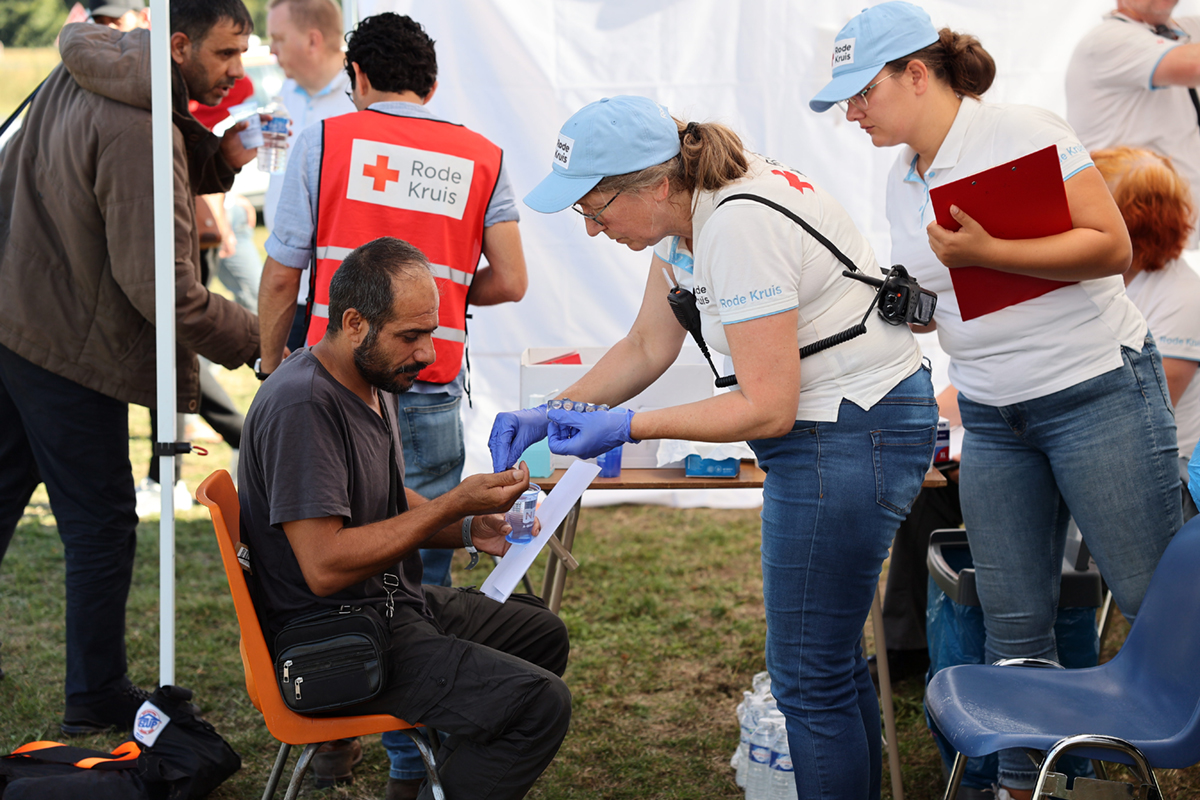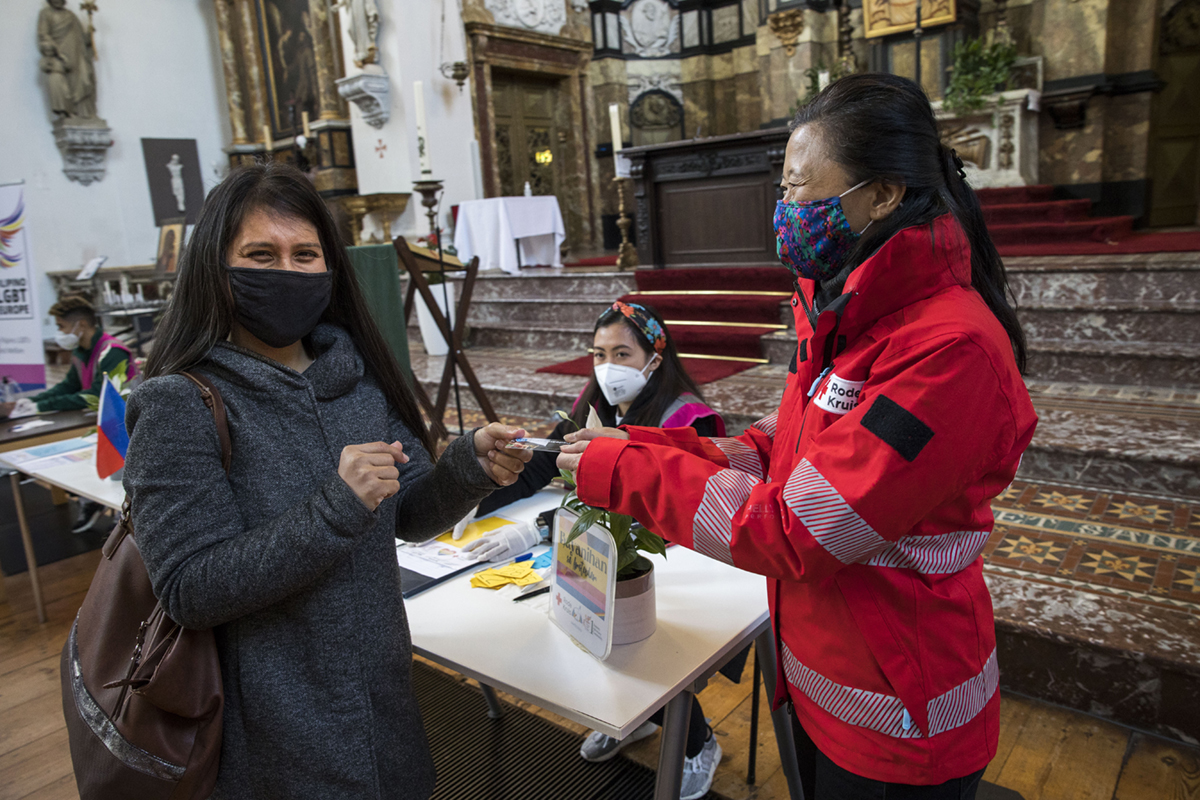Reading time 9 minutes

Independence
The Red Cross decides independently from the government. Only this way can the organisation continue to work according to its fundamental principles, now and in the future, so that every person can be helped when needed. In the choices made by the Red Cross, religion, nationality or political opinion are irrelevant. In doing so, not only political autonomy is of great importance, but also, for example, military, religious and financial independence.
Reading time 9 minutes
The Red Cross chooses its own path
Independence is the last of the seven Red Cross founding principles highlighted in this series. It is a guide to the way of working that must be guaranteed at all times. Why is independence so important? And how do we guarantee our independence, also in the future?
The founding principles of the Red Cross are closely intertwined. Important drivers are humanitarianism and impartiality, which cannot exist without each other. To help everyone on the basis of humanity, you cannot distinguish between people. These goals are propagated by the Red Cross in its way of working. Also to the outside world, for instance in relation to the government. An organisation that is open to everyone, regardless of race, skin colour or nationality, will be better able to withstand external pressure to continue to act freely in accordance with its own core values.
Own principles
The Red Cross makes its decisions independently of the government in order to determine for itself where help is most needed. Tessa Beeloo, National Coordinator International Humanitarian Law (IHL), explains why this is so important: "The government is politically driven, which could mean that certain population groups are left out of the policy or don't feel heard. The Red Cross starts from a different starting point, namely humanity. On that basis, we decide where our aid goes and which target groups we focus on."
With this way of working, it is important to be fully transparent about how decisions are made and where financial resources go. "The more transparent you are, the better you can show that you are independent."

Against bifurcation
What does that independence look like in practice? A current example is the reception of refugees from Ukraine. These people have had to leave everything behind to flee the violence of war, so it is important to receive them properly in our safe country. That is why a Humanitarian Service Point was set up in Amsterdam. "By the Municipality of Amsterdam, certain conditions were imposed there in terms of funding that were not in line with our basic principles. The Red Cross therefore eventually withdrew from this shelter, because we could not work according to our own principles."
In organising the reception in the Netherlands, the Red Cross identifies a dichotomy between people from Ukraine and refugees from elsewhere. "A structure has been set up parallel to the already existing reception system. From our fundamental principle of impartiality, we cannot distinguish between refugees based on their nationality. Therefore, we signal that more help is needed within the existing system. We continue to address this. See, for example, the problems at the reception centre in Ter Apel."

Excluded
Another example of Red Cross independence was emergency relief during the pandemic. This included supporting testing and vaccination streets and distributing food parcels and shopping cards to people in financial distress due to the lockdowns.
Tessa: "Also during this crisis, the Red Cross signalled that groups of citizens were at risk of being left out, such as entrepreneurs and self-employed people who did not receive government support. Later, the government broadened the policy. The Red Cross made the choice earlier to also offer these groups the help they needed. We played an active role in that. We have that ability because we can make decisions independently of the government."
One population group that by definition is excluded from the policy is the large group of undocumented people in the Netherlands. The Red Cross offers direct help to undocumented people and also tries to get the government to start offering structural support to them.
Where the government sometimes does differentiate between people, the Red Cross does not

Through local partner organisations, the Red Cross distributed shopping cards to undocumented people in Amsterdam and elsewhere.
International assistance
To properly identify where help is most needed, it is vital that the Red Cross is well embedded in society. That is why the organisation is active throughout the country. Not only in the provinces, but also in cities and even at the local level of neighbourhoods. The structure of the Red Cross is deliberately set up this way. To keep in touch with where the problems are, both internationally and nationally.
"Our structure is of a federal level so that needs can be assessed at the local level. This is then responded to with policies that fit within the boundaries of the country concerned."
This organisational structure also makes it possible to act globally in situations where the need is greatest at the time. "If acute emergency aid is needed in Zambia, for example, due to a conflict or natural disaster, the resources to help may be lacking there. Because we work internationally, we can scale up at the local level by having sister organisations from other countries step in. We also raise this with our own government, because we believe that as a country we should help when there is great need somewhere. So we try to regulate where humanitarian relief is important at that moment."
